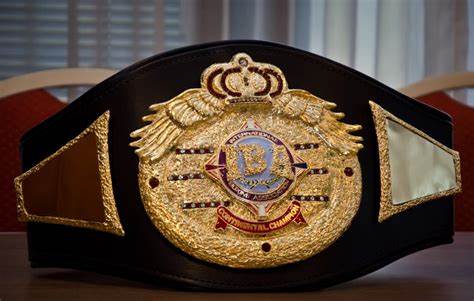Introduction to AIBA
Step into the exhilarating world of boxing, where strength, strategy, and sheer determination collide. And at the helm of this electrifying sport stands AIBA – The International Boxing Association! With its rich history, influential leaders, and awe-inspiring events, AIBA has carved a prominent position in the global boxing landscape. In this blog post, we will take you on an exciting journey to unveil the captivating realm of AIBA and explore its impact on the sport that has enthralled millions around the globe. So, tighten your gloves and get ready for a ringside seat as we dive deep into the extraordinary world of AIBA: The International Boxing Association!
History and Background of AIBA
| Abbreviation | IBA |
|---|---|
| Formation | 29–30 November 1946 |
| Type | Sports federation |
| Headquarters | Lausanne, Switzerland |
|
Region served
|
Worldwide |
|
President
|
Umar Nazarovich Kremlev |
|
Main organ
|
Congress |
| Affiliations | ASOIF, GAISF |
| Website | IBA.sport |
The International Boxing Association, commonly known as AIBA, has a rich history that spans over seven decades. It was established in 1946 with the aim of governing amateur boxing at the international level. Since then, it has played a crucial role in developing and promoting the sport worldwide.
AIBA’s early years were marked by its efforts to standardize rules and regulations for amateur boxing. This led to the introduction of weight categories and scoring systems that are still used today. Over time, AIBA expanded its focus beyond just governance and began organizing various competitions and events to showcase talent from different corners of the globe.
One significant milestone in AIBA’s history came in 2012 when women’s boxing was included for the first time in the Olympic Games. This decision by the International Olympic Committee (IOC) highlighted AIBA’s commitment to gender equality within the sport.
In recent years, however, AIBA has faced some controversies regarding governance issues and financial mismanagement. These challenges have led to sanctions imposed by both IOC and other boxing organizations. Despite these setbacks, AIBA continues to work towards improving transparency and accountability within its operations.
Looking ahead, AIBA aims to further elevate amateur boxing by introducing new initiatives such as professional-style tournaments for elite boxers while maintaining its commitment to grassroots development programs at regional levels.
With its long-standing history and ongoing efforts for advancement, it is evident that AIBA remains an influential force shaping international amateur boxing today.
Key Figures and Leaders in AIBA
The International Boxing Association, or AIBA, boasts a lineup of influential figures and leaders who have played pivotal roles in shaping the organization’s direction. These individuals possess extensive knowledge and experience in the sport of boxing, ensuring that AIBA operates at the highest level.
One such key figure is President Umar Kremlev. Since taking office in 2021, Kremlev has been dedicated to revitalizing AIBA and restoring its standing within the boxing community. With his background as a successful businessman and strong passion for the sport, Kremlev aims to drive positive change and elevate AIBA’s global presence.

Another prominent leader within AIBA is Executive Director Tom Virgets. With over four decades of experience in sports administration, Virgets brings a wealth of knowledge to his role. His expertise spans across various areas including strategic planning, event operations, and grassroots development programs.
In addition to these leaders, there are numerous other notable individuals who contribute their expertise towards advancing AIBA’s mission. From experienced coaches to respected referees/judges and technical officials from around the world,
These individuals play a crucial role in overseeing competitions organized by AIBA while upholding fairness and integrity throughout each event. Their dedication ensures that boxers have an equal platform on which they can showcase their skills while adhering to established rules.
These key figures and leaders within AIBA bring diverse backgrounds and skill sets to steer the organization towards greater success. Through their collective efforts, they strive not only to enhance boxing at all levels but also promote inclusivity among athletes worldwide.
Competitions and Events Organized by AIBA
The International Boxing Association (AIBA) is known for its commitment to promoting and organizing top-notch boxing competitions across the globe. With a vision to develop the sport and provide opportunities for talented athletes, AIBA has established a wide range of events that showcase the best in boxing.
One such prestigious event organized by AIBA is the World Boxing Championships. This biennial tournament brings together elite boxers from all over the world to compete for glory and international recognition. The level of competition at this event is unparalleled, with boxers showcasing their skills across various weight categories.
In addition to the World Boxing Championships, AIBA also organizes continental championships such as the European Games and Pan American Games. These events serve as crucial qualifiers for major international tournaments like the Olympic Games, providing athletes with a platform to earn their spot on a global stage.
Furthermore, AIBA hosts numerous regional tournaments that allow emerging talents to gain valuable experience and exposure. These events not only contribute towards grassroots development but also foster camaraderie among nations through friendly competition.
To further enhance inclusivity in boxing, AIBA introduced an innovative format called “Boxing Road to Tokyo.” This unique event features multiple qualification pathways leading up to the Olympic Games, ensuring fair opportunities are provided to deserving athletes from all corners of the world.
With its diverse array of competitions catering to different levels of skill and experience, it’s evident that AIBA plays a vital role in shaping today’s boxing landscape. By organizing these high-profile events, they continue fueling excitement among fans while nurturing future champions who will leave an indelible mark on this captivating sport.
Controversies Surrounding AIBA
The International Boxing Association, like any other organization, has had its fair share of controversies over the years. These controversies have often sparked heated debates among boxing enthusiasts and raised concerns about the integrity and transparency of the sport.
One major controversy that surrounded AIBA was its handling of judging decisions during various Olympic Games. There have been numerous instances where questionable scoring led to controversial outcomes in high-profile bouts. This not only tarnished the reputation of AIBA but also undermined the credibility of amateur boxing as a whole.
Another area of concern is the governance and management structure within AIBA. Critics argue that there has been a lack of transparency in decision-making processes, with allegations of corruption and favoritism surfacing from time to time. Such controversies can seriously impact public trust in both AIBA and the sport itself.
Furthermore, there have been accusations regarding financial mismanagement within AIBA. Reports suggest that funds were misallocated or misused, leading to financial instability for the organization. These allegations cast doubt on the ability of AIBA to effectively manage its resources and fulfill its mission.
In recent years, another controversy arose when AIBA’s governance practices fell short of International Olympic Committee (IOC) standards, resulting in their suspension from organizing boxing events at Tokyo 2020 Olympics. The IOC expressed concerns over issues such as anti-doping procedures, refereeing/judging standards, and overall governance reforms required by AIBA.
It is important for organizations like AIBA to address these controversies head-on if they want to regain public trust and ensure a clean future for amateur boxing. Transparency in decision-making processes along with stricter regulations should be implemented to prevent any further scandals or irregularities from occurring.
While some may argue that controversies are inevitable in any sports organization given their complexities; it is crucial for stakeholders involved with AIBA to work towards resolving these issues and rebuilding a solid foundation for the future. Only by addressing these controversies can.
Impact of AIBA on the Sport of Boxing
The International Boxing Association, or AIBA, has had a significant impact on the world of boxing since its establishment. Through various initiatives and reforms, AIBA has worked towards improving and promoting the sport on a global scale.
One major way in which AIBA has made an impact is through its efforts to increase participation in boxing. By organizing competitions and events at both the amateur and professional levels, AIBA has provided opportunities for boxers from all corners of the world to showcase their skills and compete against top talent.
In addition to increasing participation, AIBA has also focused on enhancing the overall quality of boxing matches. With stringent regulations and guidelines in place, they ensure that fights are conducted fairly and safely. This not only protects the athletes but also maintains the integrity of the sport.
Another area where AIBA’s impact can be seen is in promoting gender equality within boxing. They have actively supported women’s boxing by creating separate divisions for female fighters and providing equal opportunities for them to excel in the sport.
Furthermore, AIBA’s efforts have helped raise awareness about Olympic-style amateur boxing as well as professional boxing around the globe. By hosting high-profile events like World Championships and Olympic qualifiers, they have allowed fans worldwide to witness thrilling bouts between talented boxers from different nations.
It is clear that AIBA’s influence extends far beyond simply governing international boxing. Their commitment to growing and improving the sport has left a lasting impression on both athletes and enthusiasts alike. As we look towards what lies ahead for this organization, it will undoubtedly continue to shape the future of boxing with its innovative approaches and dedication to excellence.
Future Plans for AIBA
As the International Boxing Association (AIBA) continues to evolve, it has set its sights on a number of key initiatives and future plans. One of the main objectives is to further develop and expand the reach of boxing as a sport worldwide. AIBA aims to increase participation in boxing at all levels, from grassroots programs to elite competitions.
To achieve this goal, AIBA is focused on enhancing coaching and training programs, ensuring that aspiring boxers have access to high-quality resources and support. By investing in talent development and providing opportunities for athletes to excel, they aim to raise the overall standard of boxing globally.
In addition, AIBA is committed to promoting gender equality within the sport. They have implemented initiatives aimed at increasing female participation in boxing by creating more inclusive tournaments and offering equal opportunities for women boxers.
Another important aspect of AIBA’s future plans is their focus on embracing technological advancements. They recognize the importance of staying up-to-date with digital innovations in order to enhance the fan experience and make boxing more accessible through various platforms.
Furthermore, AIBA intends to strengthen partnerships with other international sports organizations and stakeholders involved in combat sports. This collaboration will help facilitate knowledge-sharing, best practices exchange, and joint efforts towards advancing the sport of boxing.
By continuously striving for innovation while maintaining integrity within the sport, AIBA looks forward to shaping a bright future for amateur boxing around the globe. Their commitment remains unwavering as they work tirelessly towards achieving their goals – inspiring new generations of boxers while making meaningful contributions that leave a lasting impact on both athletes and fans alike.
Conclusion
As we have explored the world of AIBA, it is clear that the International Boxing Association plays a vital role in shaping and promoting the sport of boxing on a global scale. With its rich history, dedicated leaders, and prestigious competitions, AIBA has become the driving force behind amateur boxing.
Despite facing controversies over the years, AIBA continues to work towards improving and evolving as an organization. The recent reforms implemented by new leadership aim to ensure transparency, fairness, and integrity within the association. These changes highlight AIBA’s commitment to maintaining boxing’s status as an Olympic sport while also prioritizing athlete welfare.
Looking ahead, AIBA has ambitious plans for further development and growth. Their focus on expanding grassroots programs worldwide will help nurture young talent and provide opportunities for aspiring boxers from all corners of the globe. Additionally, continued efforts to advance women’s boxing will contribute to greater gender equality within the sport.
AIBA remains steadfast in its mission to promote amateur boxing at every level while upholding values of respect, discipline, and fair play. Through their dedication and progressive initiatives, IBA continues to make significant contributions in shaping the future of this beloved sport.
So, whether you are a boxing enthusiast or simply intrigued by international sports organizations, the International Boxing Association offers an exciting glimpse into a dynamic world where passion meets competition.
A journey through this realm reveals not only thrilling bouts but also stories of perseverance,hope,and triumph—an invitation to witness greatness unfold before your eyes!








